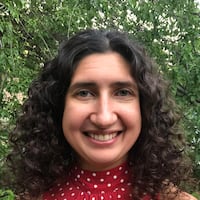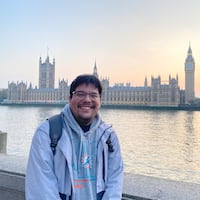Phone calls to metro Atlanta abortion providers surged Wednesday after a judge struck down Georgia abortion restrictions that had been in place since July.
Several clinics said they have begun performing abortions again for patients more than six weeks pregnant as women — and some protesters — showed up less than 24 hours after the court ruling.
Planned Parenthood, which has three clinics in metro Atlanta, was “flooded with calls” within an hour of Tuesday afternoon’s ruling, said Amy Kennedy, vice president of external affairs for Planned Parenthood Southeast.
The state’s law had prohibited most abortions after fetal cardiac activity could be detected, typically about six weeks into pregnancy and before many people know they are pregnant. The law was signed by Gov. Brian Kemp in 2019 and went into effect after the U.S. Supreme Court overturned constitutional protections for abortions in June.
In his Tuesday ruling, Fulton County Superior Court Judge Robert McBurney said the state law was unconstitutional when it was approved in 2019 and that Georgia lawmakers would need to pass legislation anew to ban abortions.
The state immediately appealed McBurney’s decision.
Georgia’s roughly one dozen clinics — most of them in metro Atlanta — remained open this summer and fall but performed fewer abortions under the tightened law. Many patients traveled to other states with looser restrictions.
Planned Parenthood’s clinics in metro Atlanta and Savannah have resumed offering medication, or pill, abortions until 11 weeks of pregnancy, as they did before the state law took effect.
Feminist Women’s Health Center in North Druid Hills, one of the groups that sued to overturn the state law, will begin performing abortions again Friday for patients until 22 1/2 weeks of pregnancy, in accordance with the limit before the law took effect.
Tuesday’s ruling expanded options for patients across the South, where many states have near-total bans, said Megan Gordon, a clinic spokeswoman.
“We’re expecting a large influx of patients, not just people across the state but across the region as well,” Gordon said.
Staffers in other departments are being asked to help take calls, make appointments and escort increasing numbers of patients, she said. The clinic did not reduce staff after the state law took effect and prepared for the possibility of this moment, she said.
“It’s a legal battle, so a certain degree of back and forth is not unexpected,” Gordon said.
Many callers to Planned Parenthood expressed anxiety that the law could suddenly change again, Kennedy said.
“They’re confused,” she said. “They are frustrated because they were told something last week or two weeks ago or a month ago, and now they are being told something else.”
Lawyers for Carafem, which operates a clinic in Atlanta, took time to read the judge’s entire statement Tuesday afternoon, but by Wednesday the clinic began providing abortions until 13 weeks of pregnancy, as it had before the state law took effect.
“Today we actually have seen people beyond six weeks, so it’s actually going well and clients have expressed relief,” said Melissa Grant, co-founder and chief operating officer. “People said they were sure they’d have to travel.”
At Summit Medical Associates in Piedmont Heights, cars came and went throughout the morning. Some people sat in their cars but declined to talk when approached by an Atlanta Journal-Constitution reporter.
Inside, women checked in at the front desk, filled out paperwork and waited for their name to be called. Phones rang and staff answered calls, with most being placed on hold because of the volume.
A Summit employee confirmed the clinic had resumed offering abortions until 22 weeks of pregnancy.
Movement was brisk early Wednesday morning inside and outside of A Preferred Women’s Health Center, located on a busy street in Forest Park in an unassuming office park in the shadow of the airport.
Two protesters were outside on the edge of the parking lot. Inside, several women and couples sat nervously in the waiting room. Throughout the morning, cars drove in.
”If a woman is emotional and upset, she knows she is doing something wrong,” said Jason Cantrell, who said he protests at two abortion clinics five times a week. “She knows she is murdering her baby.”
Cantrell, who is white, used his megaphone to rail against abortion, calling it the number one killer of Black people. Many of the patients who visit the Forest Park clinic are Black or Hispanic, reflecting the demographic of the neighborhood.
Georgia Right to Life, an anti-abortion group, continues to petition Kemp to convene a special legislative session to pass a “personhood amendment” to the state constitution that would ban abortion without exceptions. The group earlier this month submitted almost 5,000 signatures to the governor, Executive Director Zemmie Fleck said.
Keep Reading
The Latest
Featured




